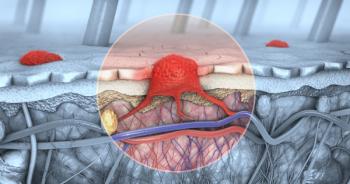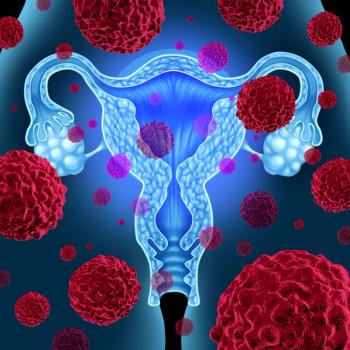
Urothelial Carcinoma Patients Have High Risk of Chemo-Related VTEs
Patients with metastatic or unresectable urothelial carcinoma who are treated with either carboplatin or cisplatin have high rates of vascular thromboembolic events.
Patients with metastatic or unresectable urothelial carcinoma who are treated with either carboplatin or cisplatin have high rates of vascular thromboembolic events (VTEs), according to results of a new study.
Previous research has shown that cancer and cancer therapy both may raise the risk of VTEs including deep vein thrombosis, pulmonary embolus, and others. This could be due to several mechanisms, including activation of coagulation cascades and a magnification of effects by chemotherapeutics. Bladder cancer is among several other malignancies believed to carry the highest risk for such events, and previous reports suggested higher rates of VTEs with cisplatin-based therapies than with carboplatin-based regimens.
The new study, led by Dean F. Bajorin, MD, of Memorial Sloan Kettering Cancer Center in New York, compared rates of VTEs in urothelial carcinoma patients treated with gemcitabine and either cisplatin or carboplatin, or in combination with carboplatin and bevacizumab. The results were
The study included a total of 198 patients: 51 received gemcitabine, carboplatin, and bevacizumab; 92 patients received gemcitabine and carboplatin; and 55 patients received gemcitabine and cisplatin. There were significant differences between the groups with regard to age, prior cystectomy, tumor location near pelvic vessels, Khorana risk group, and receipt of antiplatelet therapy.
A total of 13 of 51 of the patients who received gemcitabine, carboplatin, and bevacizumab experienced a VTE (25.5%), compared with 22 of 92 gemcitabine/carboplatin patients (23.9%), and 8 of 55 gemcitabine/cisplatin patients (14.5%). This was not significantly different between the chemotherapy groups (P = .300). Most VTEs in each group were venous, and the type of VTE did not significantly differ between groups (P = 0.111).
The authors also conducted a regression analysis to search for factors associated with increased VTE risk. The only such factor found was prior cystectomy, which carried an odds ratio for VTE of 2.22 (95% confidence interval, 1.01–4.86; P = .047).
The authors wrote that these rates of VTE mirror other reports involving cisplatin, but the 24% in carboplatin-treated patients was particularly high. The high rates of this complication raise questions of whether these patients should be monitored or treated differently, but the authors wrote that prophylaxis for all patients may be problematic given various factors including ongoing hematuria that could worsen with anticoagulation. A further study now ongoing aims to identify high-risk patients that may benefit from such prophylactic therapy.
“These observations add to our understanding of the adverse effects associated with platinum-based therapy for patients with advanced [urothelial carcinoma], although the causes and impact of chemotherapy-associated VTEs warrant further investigation,” the authors concluded.
Newsletter
Stay up to date on recent advances in the multidisciplinary approach to cancer.












































